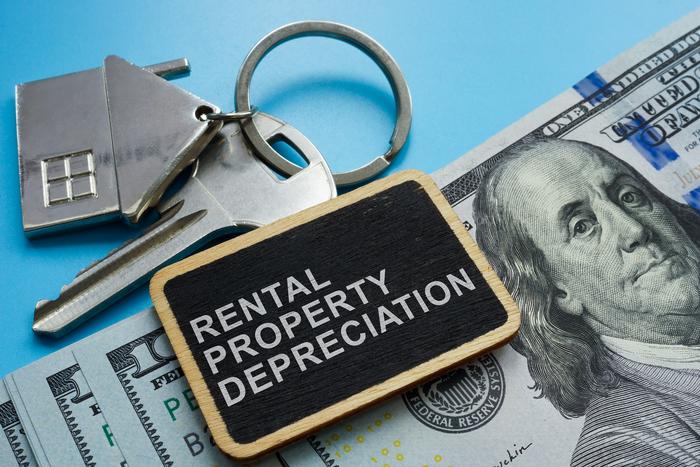Few things in life are scarier and more exciting than starting your real estate business. It’s a little bit like jumping out of an airplane: exhilarating, but terrifying. The feeling of ownership over your success is incredibly motivating, even if you’re unsure of the next steps to take.
While all business owners know that no map clearly outlines the path to success, there are certain steps that everyone should take when starting a new venture. These steps are typically outlined in a real estate business plan.
Whether you’re selling real estate on the side or it will be your full-time occupation, a real estate business plan will help define the goals, metrics, and key activities to guide your investment of time and resources.
In this article, we’ll define exactly what a real estate business plan is, review how to quickly create an effective plan, and provide specific examples for you to download and use today. If you’re ready to take control of your real estate business, let’s jump right in!
What is a Real Estate Business Plan?
A real estate business plan is a brief document that outlines the vision, goals, basic financial plan, specific tactics, and other planning decisions that will guide your investments, efforts, and overall strategy for growth.
How Detailed Should a Real Estate Business Plan Be?
Although they are comprehensive in scope, most business plans are not overly detailed or specific. Instead, the business plan will address each high-level category with a few general, strategic recommendations.
For example, your real estate business plan might highlight social media as an important piece of the marketing strategy. However, the business plan would not specify the tools that you will use to create and manage posts or the frequency of planned posts. This type of tactical guidance would almost always be addressed in the marketing plan (which will be based on goals outlined in the broader business plan).
How Often Should I Update My Real Estate Business Plan?
Real estate agent business plans are typically created once when your venture is launched and refined or tweaked over time as necessary.
Other helpful planning documents that are created on an annual basis might include detailed financial forecasts, marketing plans, investment opportunities, personal development plans, and more. Because circumstances can change due to economic shifts and other unforeseen issues, annual planning is a common and highly recommended practice. During annual planning sessions, you should evaluate the accuracy and viability of the overall real estate business plan.
If the real estate business plan is no longer relevant then it should be updated as needed to preserve its usefulness as a guiding document for key business decisions.
Information Needed to Create a Real Estate Business Plan
Creating a new real estate business plan should not feel frustratingly complex or overwhelming. Getting the business plan right will simply require you to think about specific goals you believe are realistic and the best ways to reach those goals.
Before sitting down to draft your real estate business plan, make sure that you have access to at least the following types of information:
- Market research on your target farm geography (i.e., the area where you will conduct sales and marketing efforts). This research should include basic demographic data on the types of homeowners, the number of homes, and the turnover and absorption rates.
- Basic financial projections that account for your income needs and anticipated revenue.
- A list of necessary expenses for budgeting purposes.
- Competitor research so you can understand how to differentiate your business from other realtors.
How to Develop a Real Estate Business Plan in 5 Steps
The format and content of business plans can vary by industry. However, most business plans will cover essential areas like financial goals and requirements, marketing strategy, and operations. Once you’ve conducted sufficient research and data collection, you can make the writing process easier by structuring a real estate business plan according to five primary categories. We’ve outlined below what each category should cover and provided a few examples of key information to include:
1. Vision, Values & Goals
- Your company vision, values, and goals will ultimately be the “north star” for critical decisions about sales and marketing, messaging, service, and more. In addition to establishing concrete goals over the next 1-5 years, this part of the real estate business plan should also make aspirational claims about why the business exists at all. The purpose/vision statement often defines how your company seeks to help clients and the beliefs or convictions that guide your decision-making process.
2. Brand & Differentiation
- What makes you unique, memorable, and sought after when compared to similar realtors in your area? Use this part of the real estate business plan to clearly state how your brand will be different, and how this difference will translate to value for the client. Your differentiators could include things like:
- Specialty in a specific type of real estate.
- Years of experience.
- Successful track record.
- A unique and proven approach to quickly selling homes.
3. Market Research & Approach
- Though it won’t go into specific detail, this portion of the business case should address topics like the total market size (i.e., the available opportunity within your region), and the general sales and marketing strategies that will be used to generate new leads and opportunities. The number of new prospects and closed transactions you need to maintain every month will be based on the financial requirements outlined in the following section.
4. Budget & Cashflow Needs
- This section should outline revenue requirements on a monthly and annual basis. Your cash flow needs will be dependent on your income requirements, employee or contractor wages, and other vendors or overhead costs on a monthly (or yearly) basis. Overall revenue goals will also determine how much can be invested back into the business for advertising, marketing, etc. Lastly, the revenue needs will help you calculate how many new leads, listings, and closed transactions you should aim to produce each month.
5. Farming Territory
- How will you decide where to set up a farming territory, and what are your reasons for choosing this region? This part of the real estate business plan is important because it forces you to research and explain why you have picked a specific territory as your farm. Your reasons might include:
- Healthy turnover and absorption rates.
- Low competition.
- High concentration of your ideal client profiles.
- Strong name recognition and awareness.
- Depth of experience and knowledge.
Real Estate Business Plan Example and Prompts
Here is an example of a real estate business plan and corresponding questions to give you a head start filling out your final version.
Vision, Values, & Goals
Describe why your company exists and how you help clients:
List your top goals over the next 3-5 years:
Goal #1
Goal #2
Goal #3
Examples:
- X number of homes sold.
- X revenue every month
Brand & Differentiation
Write 1-3 sentences that define exactly how you help clients as a realtor (specificity is good here), why your process is unique and the results that clients can expect.
- How should prospects feel when they’re first introduced to your brand?
- What are your areas of specialty?
- Why should clients choose you over a competitor?
Market Research & Approach
Summarize the available potential in your market by clearly outlining the number and type of opportunities. You can start by answering the questions below:
- What is the absorption rate?
- What is the turnover rate?
- What is the total number of homes?
- What is the historical trend?
Describe the marketing approach and processes that you’ll use to generate new business:
- What will your primary marketing channels be?
- How much do you think you’ll need to invest in marketing tools and advertising?
- What tools will you employ to reach your goals?
Budget & Cashflow Needs
Break down sales goals and cash flow needs on an annual and monthly basis using a spreadsheet or budgeting and accounting tools like QuickBooks. Be sure to include at least the following:
- Annual sales goals.
- Estimates of the approximate number of closings needed to achieve your goals (based on your gross commission income).
- Operating expenses, by category (including payroll).
Farming Territory
Use specific zip codes or a tool like Smart Targeting to precisely define your real estate farming geography. List the reasons why this territory was chosen, including the total available marketing opportunity or specific knowledge about the region.
Real Estate Business Plan Template (PDF Download)
Downloadable template incorporating all of the content in the section above.





















